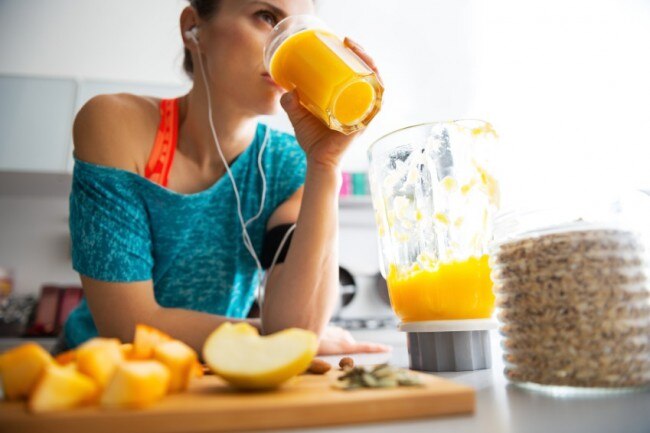You may question the validity of superfoods. As an athlete, it’s your job to think analytically. Besides, what classifies a food as “super,” anyway? Superfoods are considered to be nutritionally dense foods, with a superior combination of vitamins, minerals, antioxidants, enzymes, healthy fats and amino acids. Any good athlete knows these are all crucial elements to a successful training program, so much so that you may see increased endurance, enhanced muscle strength and even heightened mental clarity by simply incorporating more superfoods into your diet.
Not sure where to start? These 7 superfoods are worth trying now:
1. Hemp seeds
Hemp seeds are easily digested and absorbed by the body, so you’re sure to get all the recommended amino acids and essential fatty acids that your growing muscles need. The benefits don’t stop there. Hemp seeds also provide chlorophyll, calcium, magnesium, beta-carotene, fiber, iron, potassium, B vitamins and trace minerals. Bonus: these nutty nuggets contain an omega-6 fatty acid called gamma linolenic acid (GLA), which supports healthy inflammation in the body and may play a role in weight loss.*
2. Raw cacao
This chocolaty powder is one of the best sources of antioxidants, which means it helps in preventing free radical damage that may be brought on by excessive exercise. Athletes will also love that raw cacao is one of the best food sources of magnesium, a nutrient needed for healthy muscle contraction.
3. Berries: blueberries, goji & acai
These berries in particular should be at the top of every athlete’s daily must-haves list. Thanks to their powerful antioxidant powers, these helpful little fruits may offer support against inflammation, natural signs of aging and muscle cell damage.
4. Walnuts
With a soft, creamy texture, walnuts are not only good for you but good for just about any recipe. These tree nuts are rich in fiber, vitamin E and, of course, healthy fats. Beneficial in muscle recovery, athletes should include walnuts in meal plan. I prefer to add a tablespoon of chopped walnuts to my morning bowl of hot or cold cereal. Try ¼ cup serving in Greek yogurt, homemade trail mix or stirred into your favorite protein pancake batter.
5. Sweet potatoes
Colorful, beta-carotene-rich foods like the sweet potato are a healthy carbohydrate that adds micronutrients to an athlete’s active day. Sweet potatoes are low on the Glycemic Index, which means they are more slowly absorbed than refined white carb sources. This can help prevent blood sugar from spiking and crashing, so you have sustained energy from dusk to dawn.
6. Himalayan sea salt
A top concern for athletes is losing sodium and other minerals through sweat, especially during the brutal summer training days. To help replenish lost electrolytes, athletes can turn to high-quality Himalayan sea salt. This pink-hued salt provides beneficial minerals that are missing from table salts, and does so without unnecessary additives. The next time you’re cooking, swap the traditional white seasoning for Himalayan sea salt your taste buds will never know the difference.
7. Chia seeds
Just one tablespoon of these tiny little seeds packs 6 grams each of protein, carbs and fiber. Chia seeds also contain high levels of antioxidants, omega 3s, magnesium, calcium and potassium, all of which athletes require. Chia seeds can be essential for athletes by increasing energy and hydration, while helping to reduce inflammation. When they come in contact with water, the seeds form a gel-like substance. The chia gel may slow the absorption of sugar into the bloodstream, which could help you maintain energy and endurance. This unique process can help with proper hydration, as it holds on to water. Sprinkle them into smoothies, or use the chia gel in lieu of eggs in virtually any baked-good recipe.

